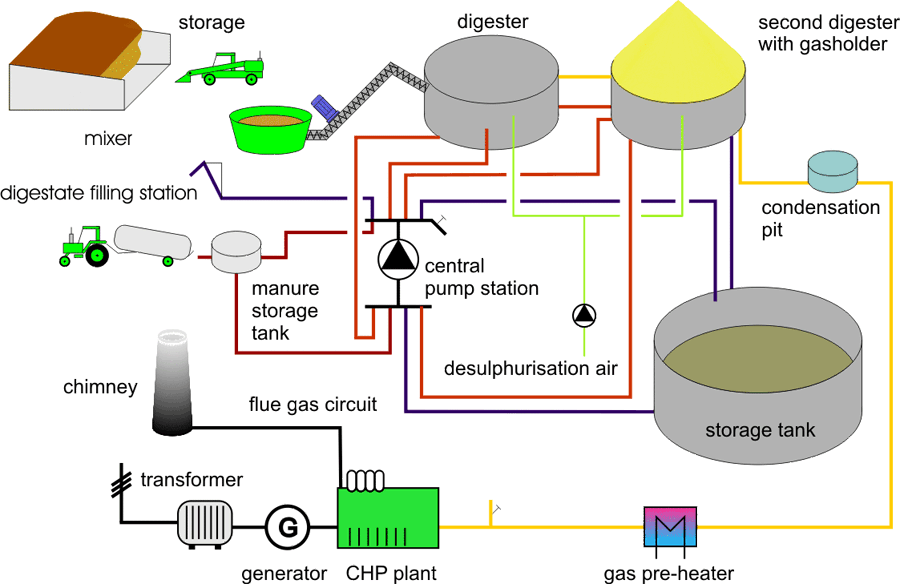This is one of the policy initiatives I will vigorously pursue to diversify Ghana’s energy mix, were I to have the chance. All public schools (especially the secondary schools), municipal and district assemblies and communities removed from the national grid (e.g. the many dotted islands around the Volta Lake) among others will be encouraged to invest and/or partner with the private sector to construct mini-biodigestors, biogas facilities and solar PV systems which will provide them localised electricity.
The excess electricity would then be sold to the grid through a power purchase agreement supported by the regulatory and legislative provisions. Do we have the regulatory framework? Yes! In Ghana, the Renewable Energy Act 2011, Act 832 seeks to promote development and use of other biomass technologies including biogas, biofuels, gasification and waste-to-energy. This is expected to achieve a 10% contribution of modern renewables (excluding large hydro and woodfuels) in the electricity generation mix by 2020 through a feed-in-tariff, obligatory purchases and the setup of a Renewable Energy Fund. Have we been serious about implementing this? NO! We’ve been fixated on thermal power and extending the overstretched national grid to communities. Can we not restructure the Self Help Electrification Programme (SHEP) to incorporate some of these dynamics?
For example, this Kenyan anaerobic digester, which is Africa’s first grid connected biogas costs $6.5m and will consume an annual 50,000 tons of organic waste sourced from a neighbouring 800-hectare (1,977-acre) farm. The plant uses crop waste to feed a two-stage anaerobic digester which uses microorganisms to feed on the waste and produce biogas to feed gas turbines. It has a 5.5 year investment payback recoup all the initial investment losses. This is made possible by the aggregate tariff of what they sell to the grid. The 2.8MW Park took only a year to build and the power it will put into the national grid will cost $0.10 per kilowatt hour compared with $0.38 per KWh for diesel-generated power.
Background Files and Materials
- http://www.naruc.org/international/Documents/18%20GHANA-WAGPA-%20RE%20Country%20Presentation%20March%202011.pdf
- http://www.energymin.gov.gh/?page_id=212
- http://www.purc.com.gh/purc/sites/default/files/renewable_energy_act_2011_act_832.pdf.pdf
- http://www.unepdtu.org/~/media/Sites/Uneprisoe/Workshop%20Presentations%20%28Powerpoints%29/Sustainable%20Energy%20Investments%20in%20Africa,%20June%202014/Day%202/2,-d-,3%20wisdom%20togobo%20-%20Renewable%20Energy%20Perspective%20in%20Ghana_Jun%202014-%20Denmark.ashx?la=da
- http://www.unepdtu.org/~/media/Sites/Uneprisoe/Workshop%20Presentations%20(Powerpoints)/SE4%20All%20Presentations/abavana%20-%20electricity%20access%20progress%20in%20ghana.ashx?la=da
- http://www.energytoolbox.org/gcre/mod_2/gcre_biomass.pdf
- http://www.renewableenergyworld.com/rea/news/article/2015/02/africas-first-grid-connected-biogas-plant-to-start-in-kenya

